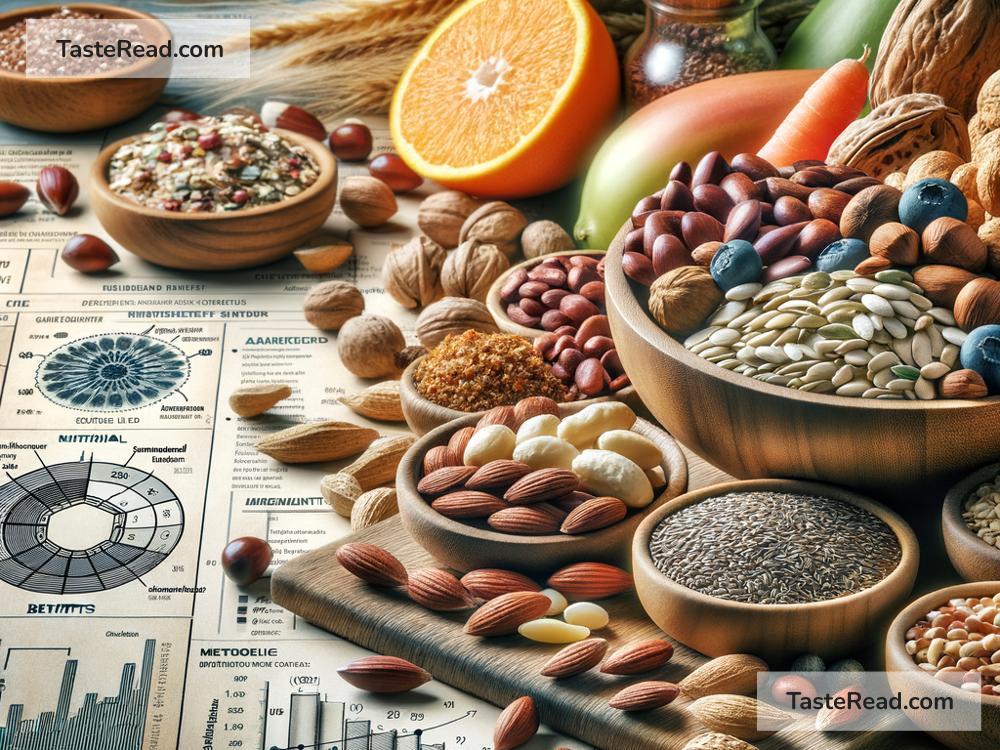The Role of Vitamin B15 in Metabolic Health
When it comes to vitamins, most people are familiar with the more popular ones like Vitamin C, Vitamin D, and the B-complex vitamins. However, not all vitamins get the recognition they deserve. One vitamin that often flies under the radar is Vitamin B15. Though less commonly discussed, Vitamin B15 plays an important role in supporting metabolic health and promoting overall well-being. In this article, we’ll take a closer look at what Vitamin B15 is, how it works, and why it matters for metabolic health.
What is Vitamin B15?
Vitamin B15, also known as pangamic acid, is a lesser-known nutrient that has been studied for its potential health benefits. Unlike other vitamins in the B-complex family, it is not officially recognized as an essential vitamin, meaning that the body can function without it. However, many researchers believe that Vitamin B15 offers unique benefits that can help support the body, especially in terms of energy production and metabolism.
Vitamin B15 was first discovered in the 1950s by Dr. Ernst T. Krebs, Sr., and Dr. Ernst T. Krebs, Jr. They found it in apricot seeds and other plant-based foods. Over the years, interest in Vitamin B15 has grown due to claims about its ability to promote energy and improve overall cellular function.
How Vitamin B15 Works in the Body
To understand why Vitamin B15 is connected to metabolic health, we must first look at how metabolism works. Metabolism is the process by which your body converts food into energy. This energy is not only essential for keeping you active but also for maintaining critical body functions like breathing, digestion, and cellular repair.
Vitamin B15 is believed to play a role in supporting oxygen use at the cellular level. Cells need oxygen to produce energy efficiently, especially during metabolism. By improving how your cells use oxygen, Vitamin B15 supports better energy production and reduces waste, such as lactic acid buildup.
Additionally, Vitamin B15 has antioxidant properties, meaning it helps protect your cells from damage caused by free radicals. Free radicals are unstable molecules that can damage cells and affect the efficiency of the metabolic process. Antioxidants like Vitamin B15 help neutralize free radicals, keeping your cells healthy and functioning more efficiently.
Benefits of Vitamin B15 for Metabolic Health
Here are some ways that Vitamin B15 can support your metabolism and overall health:
1. Boosts Energy Levels
One of Vitamin B15’s main benefits is its ability to improve energy production. By enhancing how cells use oxygen, it can help reduce fatigue and make you feel more energetic throughout the day. This makes it especially helpful for people who experience low energy or have physically demanding lifestyles.
2. Supports Detoxification
Vitamin B15 is thought to aid the body in detoxification by helping the liver process and remove harmful substances more efficiently. Your liver is a key organ for regulating metabolism, as it processes nutrients and removes toxins that can slow down metabolic functions. Vitamin B15’s support for liver health may indirectly reinforce your metabolism.
3. Improves Oxygen Efficiency
As mentioned earlier, this vitamin helps cells use oxygen more efficiently. When your body uses oxygen properly, your metabolism can work at its best, ensuring you get the most out of your food and nutrients. Better oxygen utilization can also improve overall endurance and physical performance.
4. Promotes Cell Repair
Metabolism isn’t just about converting food into energy—it also involves maintaining and repairing cells. Vitamin B15 helps protect cells from oxidative stress and improve their repair capabilities. This is particularly important because healthy cells are essential for a properly functioning metabolism.
5. May Reduce Lactic Acid Build-Up
During intense exercise, your muscles produce lactic acid, which can lead to soreness and fatigue. Vitamin B15 has been linked to the reduction of lactic acid buildup, allowing for faster muscle recovery and improved exercise performance. This benefit is especially valuable for athletes and anyone who frequently exercises.
Food Sources of Vitamin B15
Vitamin B15 can be found naturally in certain foods, although it’s not as widely available as more common vitamins. Some sources include:
- Apricot seeds
- Whole grains
- Brown rice
- Brewer’s yeast
- Pumpkin seeds
- Sunflower seeds
Eating a balanced diet with these foods may help you obtain small amounts of Vitamin B15. However, Vitamin B15 is also available in supplement form for those who need additional support.
Is Vitamin B15 Safe?
Vitamin B15 supplements have been used widely in some countries, but there is limited scientific research to confirm its safety and effectiveness. As a result, it is not officially recognized as an essential nutrient by health authorities like the FDA or EFSA.
If you’re considering taking Vitamin B15 supplements, it’s important to consult a healthcare professional first. They can help determine whether it’s appropriate for you and advise on the correct dosage.
Conclusion
Vitamin B15 plays a fascinating role in supporting metabolic health through improved oxygen use, detoxification, and antioxidant protection. While it is not officially classified as an essential nutrient, many people find it beneficial for boosting energy levels, promoting cellular health, and supporting liver function.
If you’re interested in exploring the benefits of Vitamin B15, start by incorporating foods like seeds and whole grains into your diet. Always check with your doctor before adding supplements to your routine to ensure safety and effectiveness.
By giving your metabolism the support it needs, you can help your body function at its best—and enjoy better health and energy every day!


